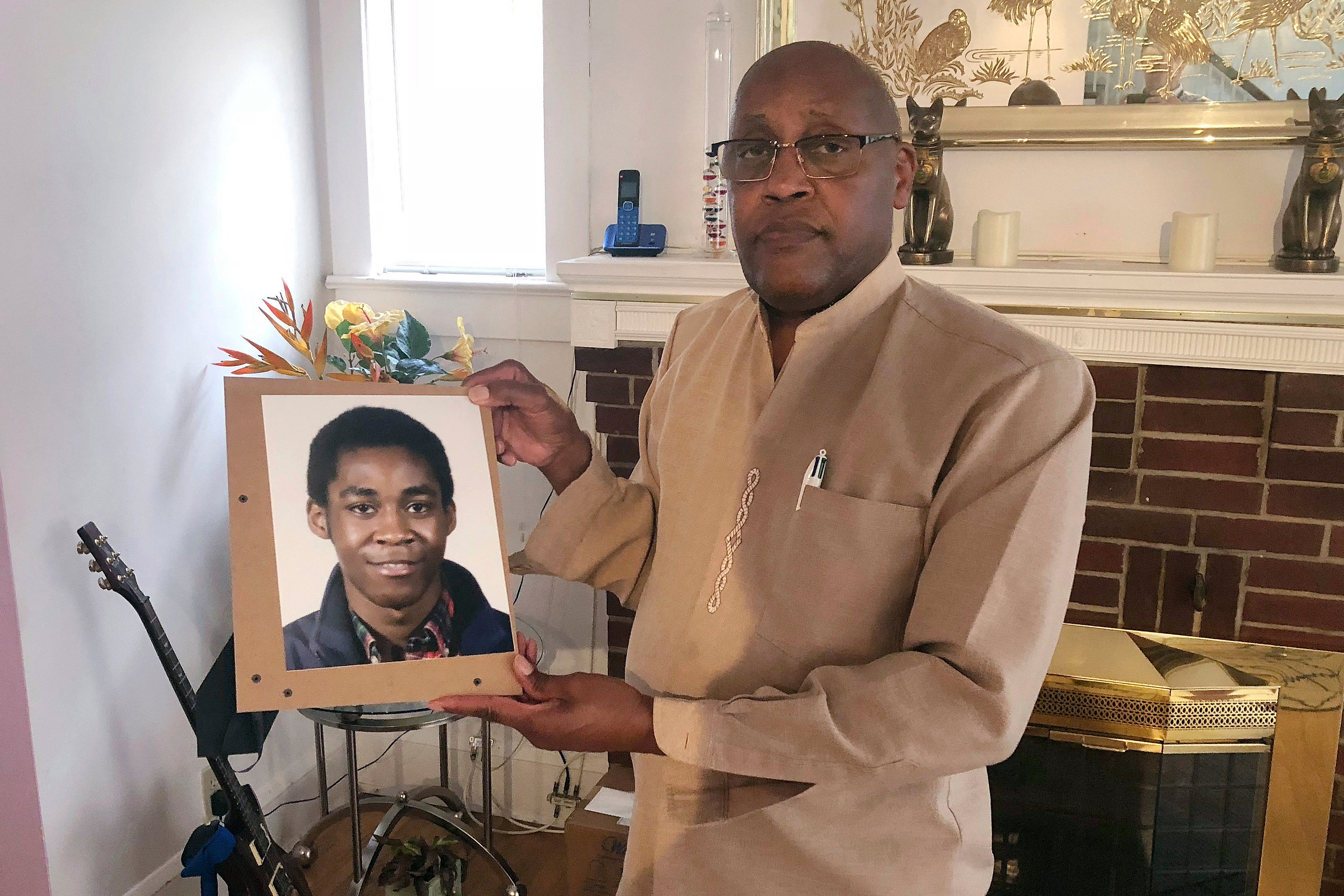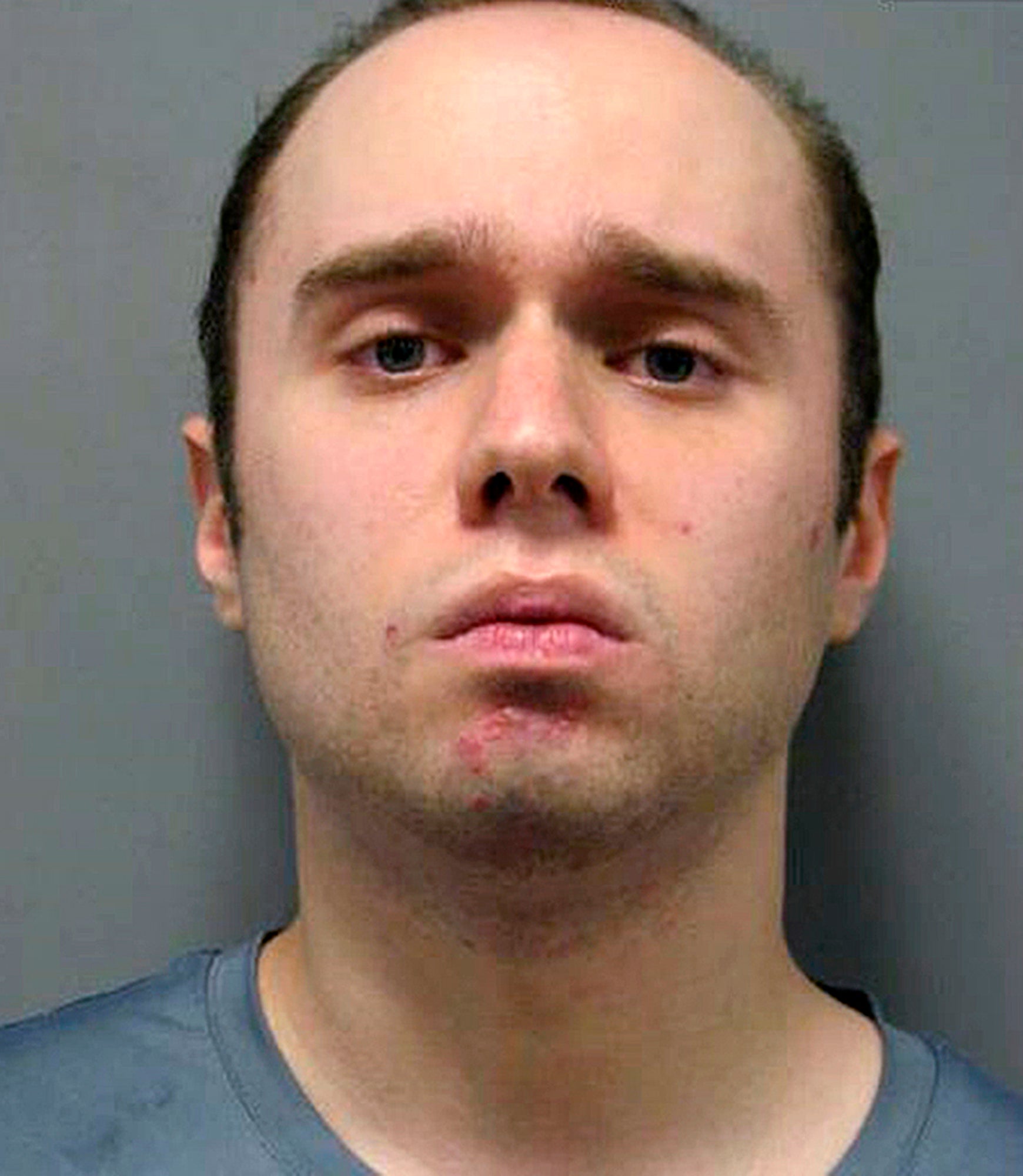How millionaire hacker’s paranoia led to $150-a-day worker being burned alive digging out doomsday bunker
Two DC-area men collaborated on a nuclear bunker. One died horribly during construction; the other is in prison. Sheila Flynn reports

Your support helps us to tell the story
From reproductive rights to climate change to Big Tech, The Independent is on the ground when the story is developing. Whether it's investigating the financials of Elon Musk's pro-Trump PAC or producing our latest documentary, 'The A Word', which shines a light on the American women fighting for reproductive rights, we know how important it is to parse out the facts from the messaging.
At such a critical moment in US history, we need reporters on the ground. Your donation allows us to keep sending journalists to speak to both sides of the story.
The Independent is trusted by Americans across the entire political spectrum. And unlike many other quality news outlets, we choose not to lock Americans out of our reporting and analysis with paywalls. We believe quality journalism should be available to everyone, paid for by those who can afford it.
Your support makes all the difference.It all began with the paranoia of a rich hacker only child, a native of the DC suburbs living in a hoarders’ paradise as he obsessed about nuclear attacks.
And it ended with the horrific death of a young man he befriended in his quest to save himself from the North Korean onslaught he considered imminent.
Daniel Beckwitt, 29, was sentenced in 2019 to nine years in prison after a jury convicted him of second-degree “depraved heart” murder and involuntary manslaughter in the death of Askia Khafra, 21 – the friend he’d hired to help him build tunnels underneath Beckwitt’s inherited home in Bethesda, Maryland.
The older man, a wealthy trader and computer expert, was the only child of an attorney mother who homeschooled him and a PHD-holding, opera singer father. His mother, who had at one point worked for the government, died when Beckwitt was 19; his father died a few years later after a battle with Parkinson’s.
By all accounts, Beckwitt grew up isolated but brilliant; when he eventually left home to attend the University of Illinois, he ended up launching hacker attacks and, when caught, pleaded guilty to felony computer fraud with no jail time, the Washington Post reported.
Khafra, also bright, ambitious and tech-savvy, was raised not far from Beckwitt - the middle-class son of immigrants from Trinidad. But he died in 2017 after a fire broke out as he worked for $150 a day in completely unsafe conditions that a court found should have been clearly dangerous to an “ordinarily prudent” person.

Last week, Maryland’s top court upheld the in voluntary manslaughter conviction but a three-judge panel from the Court of Special Appeal ruled the evidence wasn’t sufficient to sustain Beckwitt’s murder conviction. He will be resentenced but continues to serve his initial term.
The entire tragic saga hinges on the bizarre online and in-person relationships forged by a ”strange” man who, according to his attorneys, had no malintent – but whose actions constituted the “depraved heart” prosecution, state attorneys argued. That means an “extreme disregard” for human life.
Khafra wasn’t the first person hired by Beckwitt to construct a labyrinth of tunnels emanating from his suburban DC home- tunnels so unstable that authorities still haven’t been able to ascertain how extensive they might be. The eccentric only child “took elaborate steps to keep the project a secret”, AP reported.
He’d first met Khafra, using an online pseudonym, when the younger Maryland man was looking for seed money for an app startup. Beckwitt gave the young entrepreneur $5,000 but the venture didn’t work out; it was then that he solicited his help for his makeshift bunker.

“He tried to trick Khafra into thinking they were digging the tunnels in Virginia instead of Maryland by having him don ‘blackout glasses’ before taking him on a long drive. Khafra had a cellphone with him in the tunnels, but Beckwitt used internet ‘spoofing’ to make it appear they were digging in Virginia,” AP reported.
Despite construction being done in a quiet suburb about 10 miles from DC - populated by tons of government employees - neighbours were unaware of the network stretching in three directions underneath them.
Armed with a rotary hammer, jackhammer and pickax, Khafra did the job diligently for days at a time, eating and sleeping underground and relieving himself in a bucket lowered down by Beckwitt.
The tunnels was equipped with lights, an air circulation system and a heater - but they were not remotely up to code, particularly when it came to electrical. That reality was proven on the afternoon of 10 September 2017, when the smell of smoke alerted Khafra to flee.
He scrambled 15 feet up a shaft and into a cluttered basement, where he became trapped and ultimately died when flames engulfed the space. Beckwitt allegedly tried to get him out when a fire erupted, screaming for help from neighbours, as well - but Khafra’s naked, charred-beyond-recognition body was eventually recovered.
The homeowner then allegedly gave evasive answers about what, exactly, his friend had been doing underneath the two-story house. But investigators - and eventually a jury - were presented with a disturbing scenario.
They found the basement was clogged with junk, save for a slim, winding path between the bunker hole and the door to the yard. None of the windows provided a means for escape - some blocked by plywood and metal and others too small for a person to fit.
Investigators determined Khafra managed to make his way past a furnace and through a laundry room at the center of the basement. There, he stepped onto a rolling office chair, perhaps hoping to grab a fire extinguisher above the washing machine or to break through the window.
But by that point his blood had become saturated with carbon monoxide, causing disorientation that knocked him backward. He landed on a welding machine and lost consciousness before burning to death.

News about the shocking death - and eyebrow-raising project that led to it - stunned those who lived in the upmarket suburb and had known Beckwitt, even peripherally, since he was a boy.
“The whole thing has been bizarre,” Anne-Marie Kleinman, a longtime neighbor told the Post. “There was no logic to the bunker — and he’d always struck me as very logical.”
Megan Coleman, one of Beckwitt’s lawyers, said the sentencing guidelines are significantly lower for involuntary manslaughter than for a murder conviction.
“Both appellate courts have said that there was no malice in this case,” Coleman said. “To us, that would warrant a lower sentence.”
At Beckwitt’s trial, another member of his legal team argued similarly that the tragedy was “an accident.”
“An accident in a house occupied by a very strange young man who had a friend who worked with him in a very strange situation.,” his lawyer, Robert Bonsib, said.
Khafra’s father, Dia, said the ruling by the state’s high court is “illustrative of a flawed judicial system.” He believes Beckwitt’s nine-year prison sentence already was too lenient, AP reported.
“As a father who has lost his son at the tender age of 21 years in a most gruesome manner, I’m very, very disappointed,” Dia Khafra added.
Join our commenting forum
Join thought-provoking conversations, follow other Independent readers and see their replies
0Comments